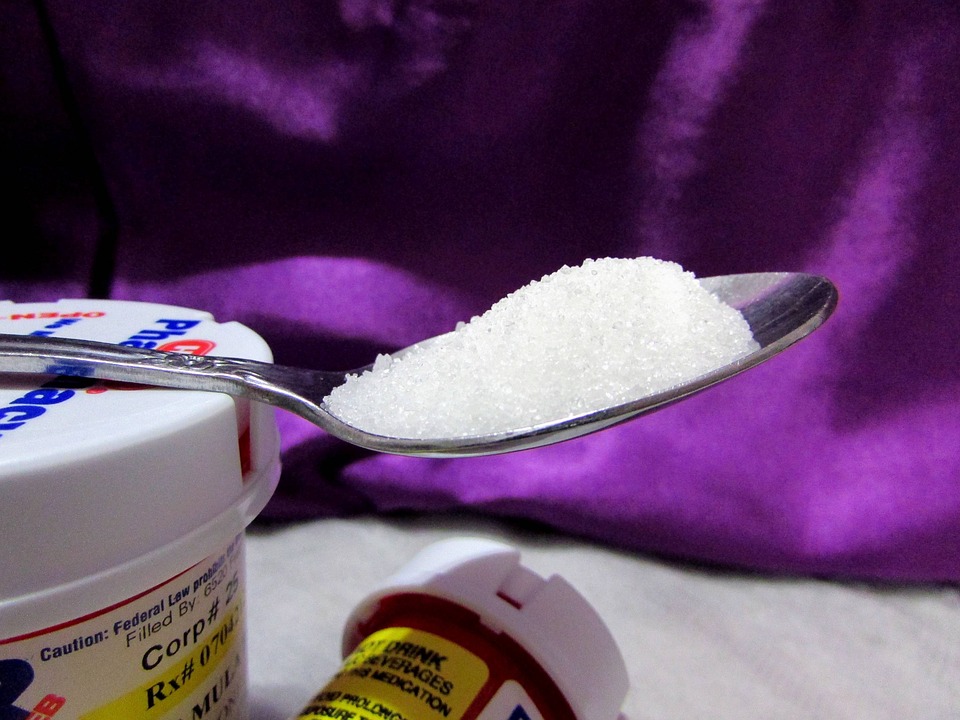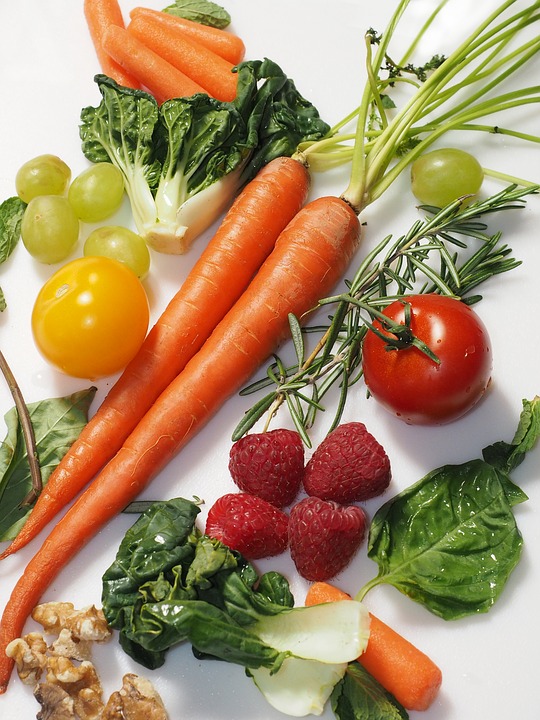Calendar
June 2025 S M T W T F S 1 2 3 4 5 6 7 8 9 10 11 12 13 14 15 16 17 18 19 20 21 22 23 24 25 26 27 28 29 30 Archives
- June 2018
- April 2018
- March 2018
- February 2018
- January 2018
- December 2017
- November 2017
- October 2017
- September 2017
- August 2017
- July 2017
- April 2017
- March 2017
- February 2017
- January 2017
- December 2016
- November 2016
- October 2016
- September 2016
- July 2016
- June 2016
- May 2016
- April 2016
- March 2016
- February 2016
- January 2016
- December 2015
- November 2015
- October 2015
- September 2015
- August 2015
- July 2015
- June 2015
- May 2015
- August 2013
- June 2013
- May 2013
- March 2013
- February 2013
- January 2013
- July 2012
- June 2012
- October 2011
- September 2011
- August 2011
- January 2011
Categories
Fitness
Getting married is one good way of keeping dementia at bay
 Getting married and settling down with your partner could go a long way in delaying the onset of dementia as per findings of a recent study. Dementia, a debilitating disease which predominates in people aged 60 and above, can adversely affect the cognitive capabilities of an individual, seriously impeding memory and preventing the person from leading a normal, healthy life. The research focused on a total of 15 studies carried out in the past that attempted to analyze a correlation between the incapacitating disorder and one’s marital status, before arriving at the aforesaid inference.
Getting married and settling down with your partner could go a long way in delaying the onset of dementia as per findings of a recent study. Dementia, a debilitating disease which predominates in people aged 60 and above, can adversely affect the cognitive capabilities of an individual, seriously impeding memory and preventing the person from leading a normal, healthy life. The research focused on a total of 15 studies carried out in the past that attempted to analyze a correlation between the incapacitating disorder and one’s marital status, before arriving at the aforesaid inference.
The previous researches which were conducted had a combined sample size of over 8, 00,000 comprising participants from Asia, Europe, North and South Americas. Following the assertion of researchers who concluded that widows, widowers, and singles were more vulnerable to suffering from the damaging disorder, health specialists attributed the finding to one’s extent of social interfacings. The research made public in the ‘Journal of Neurology, Neurosurgery, and Psychiatry’ highlighted that those persons who held onto their bachelor or bachelorette status all through their lives had a 42% higher risk of becoming demented in comparison to married individuals.
On the other hand, those who had lost a partner were 20% more likely to be incapacitated by dementia in sharp contrast to persons who were married. Surprisingly enough, the findings did not indicate that divorced couples were more susceptible to the age related condition than those who had yet not separated. Social scientists and experts from University College, London who took the initiative of carrying out the study, were of the opinion that married individuals were more sincere about leading healthier lives.
At the same time, married persons also had a greater probability of interacting with others compared to those were still single and staying alone in an apartment or flat. In the meantime, individuals whose spouse had died were subject to a high level of stress arising out of grief and loneliness that greatly contributed towards their developing dementia. However, an individual was also at heightened risks of getting bogged down with the disease if he or she had a personality or cognitive abnormality which considerably undermined his or her wellbeing.
Dr. Laura Phipps who was attached with Alzheimer’s Research, UK’s foremost dementia research charity strongly believed that married people not only lived healthier lives but they lived longer compared to those who were still single. There was persuasive research to corroborate the above generalization. Additionally, those leading conjugal lives also tended to be financially more stable. Being financially established had significant repercussions for one’s wellbeing.
Couples that stayed married inspired their spouses to cultivate healthy habits and stick to them persistently. Furthermore, they were likely to furnish moral as well as social support to each other. Dr Phipps further expressed that interacting socially may help promote cognitive reserve that served as a sort of mental bulwark against degenerating diseases like Alzheimer’s and Parkinson’s, enabling one to retain his or her cognitive capacity for a longer period.
If you are a senior citizen intending to lead a healthy, active, and meaningful life, you can get in touch with Dr. Decuypere who is an experienced and skilled chiropractor. You can also log in at www.decuyperechiropractorclearwater.com or make a call to 727-449-8080.
Image credit: andreahamilton264
Posted in Fitness, Health, Healthy living, Uncategorized, Wellness
Tagged Alzheimer’s, healthier lives, Wellness
Comments Off on Getting married is one good way of keeping dementia at bay
Tomatoes Offer Form Of Protection Against UV-Damage And Skin Cancer
 Recent studies have shown that the primary “carotenoid” found in tomatoes – especially concentrated cooked tomatoes – is a natural biological protective agent and chemical against sun damage.
Recent studies have shown that the primary “carotenoid” found in tomatoes – especially concentrated cooked tomatoes – is a natural biological protective agent and chemical against sun damage.
Naturally, given the typical tomato growing season (around May to August or October) tomatoes are exposed to serious sun rays, and for good reason. That is, as, like most vegetables, fruits, and of course trees, the sun provides the necessary nutrients for positive, healthy growth.
According to a study released this month by Scientific Reports, consuming tomatoes regularly – or even using tomato paste on your body – can offer serious protection again both UVA and UVB rays, which in turn will reduce the likelihood of exposure to various keratinocyte carcinomas (forms of cancer.)
It’s worth pointing out, however, that this does not necessarily mean that consuming (excessive) amounts of tomatoes daily is an alternative to applying sunblock regularly! In fact, a lot of people don’t realize it, but even on cloudy days, there can be significant UV exposure, damage, and development of skin cancer later on in life.
Interestingly enough, clinical studies also showed that other forms of cancer such as lung, prostate, and even stomach cancers can be prevented through regular consumption of tomatoes – thanks to the lycopene content in each one you take a bite out of.
Tomatoes and its significant health benefits to preventing cancer and blocking UV-ray damage are indeed impressive in of itself. But, unlike other (raw) vegetables or fruits, in this case, it’s best to cook the tomatoes first – make a paste – and even eat it on your favorite pizza to get the most cumulative nutrients effects! This is because cooking tomatoes activate more of the “lycopene” than those left uncooked – much similarly to the health benefits and lycopene contents made bioavailable in other fruits like tangerines.
While current scientific studies and reports do verify to an extent that tomatoes and tomato sauce will help prevent short-term sun damage, whether or not it can protect against the long term effects is still something researchers are trying to find out.
What makes this study and scientific research most significant is that test participants were also found to have higher levels of procollagen, which is the precursor of collagen – this again emphasizes the nutritional values tomatoes have on your skin.
Many people already consume tomatoes daily, merely for this reason alone – and experience smoother, more supple skin in doing so!
Picture Credit: sphaeroid
Posted in Alternative Treatment, Fitness, Health, Healthy living
Tagged #health benefits, #lycopene, #stomach cancers, keratinocyte carcinomas, procollagen, Tomatoes
Comments Off on Tomatoes Offer Form Of Protection Against UV-Damage And Skin Cancer
Maintaining a Healthy Weight through Routine Workouts
 Why maintaining weight through regular workouts is so crucial?
Why maintaining weight through regular workouts is so crucial?
Almost every health-conscious individual is aware that obesity can lead to grave lifestyle diseases and disorders eventually affecting one’s well-being as well as cutting short the lifespan. Over 33% of the adult populace in the US was found to be obese in 2010. Obesity is rated in terms of BMI or body mass index and anybody with a BMI of 30 or above is said to be overweight.
Corpulence is a leading cause of heart disease, stroke, diabetes, hypertension, and even some kinds of cancer. Limiting calorie intake by controlling what you eat and exercising regularly will lead to weight loss on a gradual basis.
Losing Weight by Harmonizing Exercises with Balanced Diets
In order to ensure that you burn excessive fat gradually, you should exercise regularly as well as stick to a balanced diet. In fact, the key to torching the calorie build up is to strike a balance between a regimented workout program and low-calorie meals. Exercising habitually will not only help in weight loss but also prevent, reduce or delay the onset of several disorders and diseases.
Exercise boosts your confidence levels, keeps you energetic all day long, stimulate your metabolic and immune systems, and help keep cholesterol as well as blood pressure levels under control.
How Frequently Should You Exercise for Losing Weight?
You should do some sort of cardiovascular exercise nothing less than thrice weekly, each session lasting for at least 20 minutes in order to keep yourself in the pink of health. Nevertheless, you’ll tend to lose weight faster and with consistency if you exercise for half an hour. For instance, you can go on an early morning trek in your neighborhood walking for 2-3 miles or you can consider cycling, swimming or jogging as well.
Estimating the Targeted Heart Rate
For getting the best out of your workouts, you’ll have to perform some strength building exercises. Running on the treadmill, doing pushups, and exercising with kettlebells will keep your heart in perfect working order. To keep a tab on the efforts that you are putting, calculating your heart rate would be necessary. Consult a fitness expert for knowing the intense workouts that will be suitable for you and surely get in touch with a doctor before starting on a fitness schedule.
Various Forms of Workouts
Depending on your age and level of fitness as well as taking into account any ailment you suffer from there are different kinds of exercises you can perform including aerobics, meditation, yoga, and weight training.
Integrating Exercises with Your Lifestyle
No matter how hectic or busy your daily life is, you can always take out some time for engaging in some sort of physical activity. For instance, you can get a little early in the morning and go for a walk or jog in the local park. Or, instead of driving to your workplace, you can cover the distance by striding in case your office is not situated very far away. Sometimes you can pace up and down the stairs rather than stepping into the elevator.
Before Getting Started
You should definitely talk to a physician before you start following a workout program and more so if you suffer from diabetes, kidney disease, arthritis or heart disease.
Picture Credit:5132824
Posted in Exercise, Fitness, Health, Healthy living, Weight loss, Workout
Tagged aerobics, meditation, physical activity, weight training, yoga
Comments Off on Maintaining a Healthy Weight through Routine Workouts
6 Likely Reasons why you are not getting enough sleep
 The last thing that you might want after an exhausting day at the office is tossing and turning in bed the whole night and getting up next morn, feeling restless and piqued. Sleeping soundly through the night, for 7-8 hours, is indispensable if you want to start and end the following day on a high note. However, a good majority of people, both young and old, spend sleepless nights or make do with just a few hours of sleep.
The last thing that you might want after an exhausting day at the office is tossing and turning in bed the whole night and getting up next morn, feeling restless and piqued. Sleeping soundly through the night, for 7-8 hours, is indispensable if you want to start and end the following day on a high note. However, a good majority of people, both young and old, spend sleepless nights or make do with just a few hours of sleep.
The stress that results from living a fast-paced and hectic life is surely the chief culprit that keeps an individual awake when he or she should be sleeping. On the other hand, not being able to sleep peacefully on a recurrent basis eventually leads to several health issues. Besides stress, leading an undisciplined lifestyle, typified by bad habits could also rob you of your sleep.
Following are some of the most common gaffes that many people make which ultimately prevent them from dozing off along with tips on how to tweak them:-
1. You are hitting the sack too late
Most of us spend the better part of the day trying to complete too many tasks in too little time. We rush through our meals and more often than not, skip our daily workout regimen. When you reach home, you’re thoroughly spent, and by the time you settle down in your sofa to watch your favorite TV program, it’s time to have dinner and hit the sack.
However instead of rushing to bed, you keep on dithering and deferring, and finally, when you do, you find yourself staring at the ceiling hours later. Doctors and sleep therapists suggest that you should retire for the day latest by 9 pm to enjoy a good night’s sleep and to get up feeling refreshed the morning after. There are some tasks which you can delegate to your spouse or postpone until the weekend.
2. Switch off or dim lights before going to bed
The idea of using LED lights is always praiseworthy as this type of lighting is environmentally friendly and also goes a long way in helping you to save on utility bills. However, the downside of using LEDs is that their brightness or luminosity could adversely affect your sleep. Switch off or dim the lights before going to bed.
3. You are not following a routine
Your physiological systems could go haywire if you do not sleep, eat, exercise or work at fixed times. Try following a regular sleeping pattern as well as complete all your routine tasks at the same specific times every day.
4. You are restless and worried about having lost sleep
Being overly anxious about having lost sleep yesterday night could keep you awake for the subsequent nights as well. Just tell yourself it’s perfectly OK to have lost sleep the previous night.
5. Some medications could be keeping you awake
Certain medications including antidepressants, analgesics, and blood pressure medications could keep you from shutting your eyes. Consult your doctor and he or she may put you on another drug.
6. You are glued to the computer or TV when you should be sleeping
There’s no earthly reason why you should end up stressing yourself watching your favorite team win or lose when the outcome is not going to make a difference to your life. Switch off the TV before it’s too late and jump to bed.
Picture Credit: 12122
Posted in Chropractor, Fitness, Health, Healthy living, Sleeping
Tagged favorite TV program, health issues, sleep therapists, sleepless nights, undisciplined lifestyle
Comments Off on 6 Likely Reasons why you are not getting enough sleep
Processed Carbohydrates and Cancer Risk
 There is a growing body of literature that shows the damage that carbohydrates can have on our bodies, especially when overconsumed. There is growing concern that it is sugar and carbohydrates that have actually driven the increasing obesity levels in Western countries. This is in stark contrasting to the previous sentiment that fat was the culprit and the implications are tremendous. Carbohydrates are so heavy in many foods, particularly processed foods where high fructose corn syrup is often one of the top three ingredients. Now, research suggests that the detriment of carbohydrates extends beyond just metabolic diseases into potentially cancer risk as well.
There is a growing body of literature that shows the damage that carbohydrates can have on our bodies, especially when overconsumed. There is growing concern that it is sugar and carbohydrates that have actually driven the increasing obesity levels in Western countries. This is in stark contrasting to the previous sentiment that fat was the culprit and the implications are tremendous. Carbohydrates are so heavy in many foods, particularly processed foods where high fructose corn syrup is often one of the top three ingredients. Now, research suggests that the detriment of carbohydrates extends beyond just metabolic diseases into potentially cancer risk as well.
A new study shows that people who consumed sugar drinks like soda or even juices had a rate of prostate cancer almost three times that of those who did not drink the same sugary liquids. Furthermore, people who ate processed lunch foods including pizza, burgers, and processed meat had twice the prostate cancer risk as those who did not. People who ate lean meats and healthy carbohydrates like vegetables and legumes, on the other hand, had a much lower risk of breast cancer than those who did not eat these nutritious foods.
NourMakarem, the lead author on the new study, explains that they looked at health records for 3,100 volunteers who offered up information beginning in the early 1970s. Diets began to be tracked in 1991. Makarem and her colleagues looked at the glycemic indices of the foods that were in the diets and used this to calculate the glycemic load in people’s diets. They then look at the retrospective data on cancer in the same patients and were able to assess potential associations between diet and cancer incidence.
The results showed very strong correlations. It should be stressed that this type of retrospective data research while growing in popularity, does have its limitations. In the end, it is only an association that can be drawn and not a causal conclusion. That being said, however, strong associations often have some underlying scientific mechanisms and in this case, the study is hypothesis-generating. Future research including randomized clinical trials (if possible and ethical) should be done to look at the impact that diet and carbs have on cancer risk. One of the other major limitations of the Makarem study was that the vast majority of patients were Caucasian.
Cancer is a very complicated set of diseases and the causes for each type are multifactorial. That being said, certain things seem to really drive the incidence up and trying to adjust our lives to avoid these risks may make sense in the overall assessment of our health prospects. Considering the synergies in avoiding the risk of other metabolic diseases by avoiding too many and bad carbs, it makes sense to cut back. When it comes to the metabolic diseases, such as diabetes, there are many studies that show causal relationships between carbohydrate consumption and the development of disease, so it is wise to cut back even if the cancer hypothesis turns out not to be true.
Image Credit: ArtsyBee
Posted in Fitness, Health, Healthy living, Wellness
Tagged burgers, Cancer, Carbohydrates, Obesity, pizza, soda
Comments Off on Processed Carbohydrates and Cancer Risk
6 Foods Which Can Be Potentially Damaging for Your Metabolism
 Up till now, it was generally believed that a large variety of foods or food items that titillated the taste buds the moment you tucked into them ultimately led to your putting on weight. However, recent studies and researches on the health effects of consuming these foods have indicated that these items could also take a toll on your metabolism as well. Hitherto, the perception that predominated amongst dieticians, nutritionists, and health-conscious individuals was that weight loss or gain resulting from purported healthy food was exclusively dependent upon thermodynamic laws.
Up till now, it was generally believed that a large variety of foods or food items that titillated the taste buds the moment you tucked into them ultimately led to your putting on weight. However, recent studies and researches on the health effects of consuming these foods have indicated that these items could also take a toll on your metabolism as well. Hitherto, the perception that predominated amongst dieticians, nutritionists, and health-conscious individuals was that weight loss or gain resulting from purported healthy food was exclusively dependent upon thermodynamic laws.
Simply put, you tended to put on weight if your daily calorie intake was higher than the amount you expended. But if the current trials are to be believed, equal calorific amounts of specific food items say margarine or soda, inside your system, may not affect you in the same way, unlike what was previously thought. Following are six distinct food items whose consumption will not only boost up your calorie balance but also have other adverse effects.
1. Soda
Soda never makes it to the diet chart of any individual who swears by healthy living. The carbonated drink has earned a bad name owing to its presence of an artificial sweetener called HFCS or high-fructose corn syrup. HFCS is not only a cheap but also a detrimental sweetening agent that is used in a range of soft and fizzy drinks as well as processed foods.
As per findings of the studies, sugar when consumed in the form of fructose can be more damaging for health when compared with consumption of other sugar forms like glucose or sucrose (in equal quantities). HFCS can be a risk factor for causing obesity due to its adverse or negative impact on metabolism. Drinking soda-based beverages regularly lead to ‘metabolic syndrome’ making you highly susceptible to suffering from stroke, diabetes or heart disease.
2. White Bread
White bread is one highly treated or processed food that your body finds easy to break into smaller fragments and digests. This is so because fibers which help boost the metabolic mechanism are absent in white breads-the substance or element is done away with during the processing stage. No extra calories are expended or burnt by your body during the digestion or ingestion process which ultimately brings down the normal functioning rate of your metabolism. If your body doesn’t burn the extra or unspent calories, these get converted and stored as fats. You’ll be better off consuming healthy food items that have been made out of whole grains of rice, wheat, barley instead of ones that don’t contain any fiber.
3. Margarine
In the pecking order of fats, trans-fats also called trans-fatty acid are worse than saturated fats owing to their potential to spike up the LDL cholesterol level thereby putting you at high risk of suffering from strokes and CAD. Following FDA’s directive to clearly label the ingredients of processed food items way back in 1999, most of the foods laden with trans-fats have been removed from the racks of departmental stores. Nevertheless, baked foods and margarine blocks or sticks contain a reasonably high level of trans-fats that can cause insulin resistance. Developing a resistance to insulin, which plays a key role in metabolizing carbohydrates and fats may ultimately lead to slowing down of metabolism.
4. Vegetable or Canola Oil
Canola oil which was previously promoted as healthy food is now being considered as a harmful ingredient that might actually decelerate the metabolic process owing to its high content of omega-6 fatty acids.
5. Farm Reared Apples
Vegetables and fruits grown in farms where a high level of pesticides and fertilizers are used can cause metabolic changes leading to fat buildup. Though organic food items including apples are more expensive, consuming the same would keep you in good health and save your visits to the clinic.
6. Farmed Beef
Farmed beef, in the long run, can turn out to be more damaging to the health, compared to beef obtained from livestock that has been fed on grass. Farmed beef contain antibiotics that drive away from both the bad and good bacteria from our guts. And there is a strong correlation between gaining weight and alteration in the bacterial structure of the gut.
Posted in Fitness, Health, Healthy living
Tagged Healthy food, healthy living, omega-6 fatty acids
Comments Off on 6 Foods Which Can Be Potentially Damaging for Your Metabolism
The Impact of Sugar on Our Health
 Sugar has been one of the most misunderstood, yet shockingly abundant parts of the modern Western diet over the last few decades. For a long time, fat was considered to be the primary culprit for rising rates of obesity and cardiovascular disease in the United States and elsewhere. Newer literature suggests that we may have had this drastically wrong with carbohydrates, namely sugar, perhaps being the real detriment to the public health. Coupled with a strong industry lobby, sugar flew under the radar for a long time and even today is still added in many, many products in which consumers would never suspect it- often in the form of high-fructose corn syrup (examples include tomato sauce, baked beans, and many processed foods).
Sugar has been one of the most misunderstood, yet shockingly abundant parts of the modern Western diet over the last few decades. For a long time, fat was considered to be the primary culprit for rising rates of obesity and cardiovascular disease in the United States and elsewhere. Newer literature suggests that we may have had this drastically wrong with carbohydrates, namely sugar, perhaps being the real detriment to the public health. Coupled with a strong industry lobby, sugar flew under the radar for a long time and even today is still added in many, many products in which consumers would never suspect it- often in the form of high-fructose corn syrup (examples include tomato sauce, baked beans, and many processed foods).
Sugar and high fructose corn syrup are everywhere and have numerous detrimental effects on our health. Diabetes is the obvious downstream disease which is most often associated with high sugar intake. In this metabolic disease, patients’ bodies cannot effectively clear sugar from the blood by moving it into cells as healthy people might be able to do. Blood sugar levels get higher and stay high longer than in those without the disease, often leading to numerous sequelae. These downstream effects include, but are not limited to, increased risk of infections, increased incidence of neuropathies, and increased risk of heart attacks.
There is also some thought that the high sugar levels may effectively stimulate the growth of cancerous cells with a virtually unlimited supply of nutrients, although this research is not as conclusive. Increased sugar levels in the blood may also have effects on numerous chemical pathways in the body which we have not yet even studied.
One of the other major concerns with high sugar intake is the potential development of cardiovascular disease. As the rate of heart attacks continues to be worrisome in the United States, this is a legitimate public health concern. Programs to stop sugar consumption or increase education on it may help offset the downside impact. Specifically, some municipalities have turned to Pigouvian taxes such as those on soda in order to discourage consumption of excessive sugar. Many fruit juices even contain tons of added sugar, which is often given to children and starts them off with bad nutritional habits which carry over into adulthood.
As a country and society, there is little arguing that we eat too much sugar. A lot of this goes back to the availability of cheap foods in supermarkets and fast food restaurants which are riddled with the additive, often without people even realizing it. It will really take a significant educational and cultural change to turn the tide, but it is well worth the investment and effort to do so for the sake of the future health of the country and world. On an individual level, educating yourself and minimizing sugar consumption in a balanced diet can be a great start to living a healthier and likely more fulfilling life. As the health food movement continues to gain steam, it may eventually squash the stranglehold of the substance.
Picture Credit: pamula133
Posted in Fitness, Health, Healthy living, Wellness
Tagged Diabetes, health, heart attack, Sugar
Comments Off on The Impact of Sugar on Our Health
Reasons Why Fewer Americans Are Interested in Slimming Down
 It is quite intriguing to note that more and more Americans have gone on record iterating that they don’t consider themselves to be obese, and hence not likely to be interested in weight loss programs. The chances of the present day US population expressing their desire to shed pounds and lose weight are less if the results of a recent poll or survey conducted on a section of American adults are to be believed. The survey was carried out by Gallup which revealed that more than 50 percent of Americans who were surveyed in the years between 2010 and 2016 had shown a desire for weight loss.
It is quite intriguing to note that more and more Americans have gone on record iterating that they don’t consider themselves to be obese, and hence not likely to be interested in weight loss programs. The chances of the present day US population expressing their desire to shed pounds and lose weight are less if the results of a recent poll or survey conducted on a section of American adults are to be believed. The survey was carried out by Gallup which revealed that more than 50 percent of Americans who were surveyed in the years between 2010 and 2016 had shown a desire for weight loss.
However, the corresponding figure for opinion polls conducted between 2000 and 2009 was 59 per cent which clearly establishes the aforementioned generalization that presently less number of Americans might be eager to slim up or melt the fat around their waists. Perhaps the inducement or stimulus for toning up the muscles or torching fat is in some way connected with the generation perception Americans have about obesity. Just about 44 percent of Americans felt that they were obese or overweight in the nineties. This figure came down to 41 percent in the initial millennial years and in the last seven years from 2010 to 2016, only 37 percent of the adult US population considered themselves to be obese.
The findings of the obesity perception of Americans were in sharp contrast compared to data collated from numerous other surveys indicating that the rate (of obesity) were on the rise in the US. In the last decade and a half, the obesity rate of/in the country demonstrated a steep 30.5 per cent spike in the year from 1999 to 2000. Then again, the rate heightened to 37.7 per cent in the year 2013-2014. These data were released by the Centre for Disease Control and Prevention. The exact reasons behind such findings that were at odds with each other are ambiguous but Gallup-the organization behind the survey also discovered that Americans’ insight or opinion about what constitutes ideal weight is also undergoing a sea-change.
Americans who were polled in the nineties considered 153 lbs to be the figure for ideal weight. Nevertheless, for polls that were carried out in the first decade of the new millennium, the corresponding figure was 159 lbs and for surveys conducted in between 2010 and 2016, the figure was `161’ lbs. Gallup, therefore, concluded that the benchmark or yardstick for an individual’s ideal weight showed a slow and steady increase.
Image Credit : Don Purcell
Posted in Fitness, Health, Healthy living, Weight loss
Tagged Obesity, Weight Loss, weight loss programs
Comments Off on Reasons Why Fewer Americans Are Interested in Slimming Down
Can Fruits And Vegetables Fight ALS?
 According to a new study from Columbia University, the scientists there state that their data suggests that fruits and vegetables can lessen the severity of ALS.
According to a new study from Columbia University, the scientists there state that their data suggests that fruits and vegetables can lessen the severity of ALS.
Basically, it’s all about good nutrition. Staying away from dairy and deli or processed meats. These products have been nailed as problem foods for decades now and in this case, the data proves it out. Along with other nutritional advice spouted by just about every fitness and bodybuilding professional as well as the world’s top nutritionists, it’s all about eating smart. Eating what humans are supposed to eat, not cramming ourselves with foods that lack nutritional value and are so overly processed with salt, sugar, and chemicals, that they become more problematic than providing sustenance.
It’s a given, the body is a miraculous healing machine, however, for the body to repair itself and prevent damage from stress, diseases, insects, etc, it needs the vitamins and minerals in the right combinations and portions to provide the body’s regenerative systems to operate at peak proficiency. Without such nutrients, the body ends up getting damaged and falling backward, the processed foods doing more damage than good.
That’s why the researchers of this study in the JAMA Neurology, states that ALS patients should be eating high fiber grains, poultry, fish that are high in antioxidants and carotene. Any nutritionist worth their beet juice will tell you the same thing, but our lifestyles have to change if we’re going to battle devastating illnesses like ALS.
It’s not that difficult to change one’s lifestyle. There’s no time like the present to get on a healthy route by eating smart. Organic products may seem more expensive but their benefits are worth it. There are tons of websites by organic experts showing products available as well as how to grow your own products. You have to be careful with fish, though. Often, fish imported aren’t what they’re labeled. It’s a practice the government is cracking down on , but since it makes so much money fooling the public it’s an uphill battle. Instead, look for local fisherman if you have them around. If not, try a nearby community that packs and ships fish after they’ve caught them. They usually arrive the next day but this way you’ll be assured what you’re buying is what you want.
Lifestyle changes also include carrying a bag of nuts, grains, dried fruits and other natural snacks with you so that you don’t get tempted by that sale at the local donut shop or that new scrumptious cake that the kids are all clamoring about.
This study is a validation to those who’ve been professing the benefits of nutrition for decades. Perhaps ALS patients will take note and get on the bandwagon.
Image Credit : dbreen
Posted in Fitness, Health, Nutrients
Tagged ALS, good nutrition, Organic Product
Comments Off on Can Fruits And Vegetables Fight ALS?
Beet Juice a Workout Necessity?
 Many athletes, gym rats, and sports enthusiasts alike believe that beet juice in the form of a full sized 12 oz cup, or even “shots” is the solution to dilated blood vessels, muscles, and nitrate to nitrous oxide conversion.
Many athletes, gym rats, and sports enthusiasts alike believe that beet juice in the form of a full sized 12 oz cup, or even “shots” is the solution to dilated blood vessels, muscles, and nitrate to nitrous oxide conversion.
The constriction of blood vessels and a lack of natural nitrous oxide build-up in the muscles minimizes work-out effects, likelihood of full expansion, greater potential, and even recovery quality post-workouts.
Recent research conducted by Penn State University scholars and professors indicate that there is a possibility that consuming large amounts of beets for the sake of muscle endurance and enhanced performance may be unlikely – or at least for younger athletes. Studies showed that the muscle blood flow and vessel function did not improve or widen with the majority of test-subjects.
Dilation and physiological improvements on a beet-rich diet, “shots”, or shakes might also be less than originally thought because workouts are not actually intense enough to demand such widening of blood vessels and dilation.
Continued medical research and testing demonstrates a possibility of improved blood pressure and cholesterol levels. However again, strongly dependent upon a test-subjects age and present health conditions as well.
Examining blood-flow, medical condition changes, and vascular endothelial functionality or potential can be a difficult task. Gauging such physiological changes can be especially difficult over short periods of time, regardless of workout intensity.
Professional athletes and those who are involved with especially heavy lifting sessions find themselves at a loss for vascular expansion or elasticity, and in turn seek such vascular endothelial optimality by using various supplements. Often, such individuals attempt to consume the compounds found in beets and beet juice through pills or herbs.
Beet juice, like many vegetable juices is of course good for the health, digestive track, and improves the condition of one’s blood and blood-flow.
While scientific research showed that beet juice causes a sort of artery “de-stiffening” effect, how it differentiates across test-subjects is a difficult test and concept to understand. Also, a certain level of vascular “de-stiffening” is required to really benefit from any blood-vessel expansion and absorption.
Those who successfully obtain health benefits from beet juice find more effective, and larger muscular growth. This, in turn effects how cells use oxygen, and in turn where and how fast the oxygen is carried to muscles – directly impacting both muscle performance and long-term growth.
If beet juice successfully shows vascular dilation, then it’s probable to assume that to some extent such nutritious consumption directly impacts and stimulates advanced, desirable muscle growth.
The liquidation and beet juice “shots” created by many sports-enthusiasts and gym cafeteria’s alike is meant to deliver an adequate, rapid amount of nitrous oxide promotional nutrients and minerals. In turn, beat juice is thought to even add to supplemental growth via its many beneficial, nutrient-rich chemical properties.
Just as the most intense workouts have the highest probability for increasing muscle fatigue and in turn growth, the same can be said for the application or consideration of specific meats, fruits, or vegetables such as beets and their “purity”.
Image credit: maramicado









